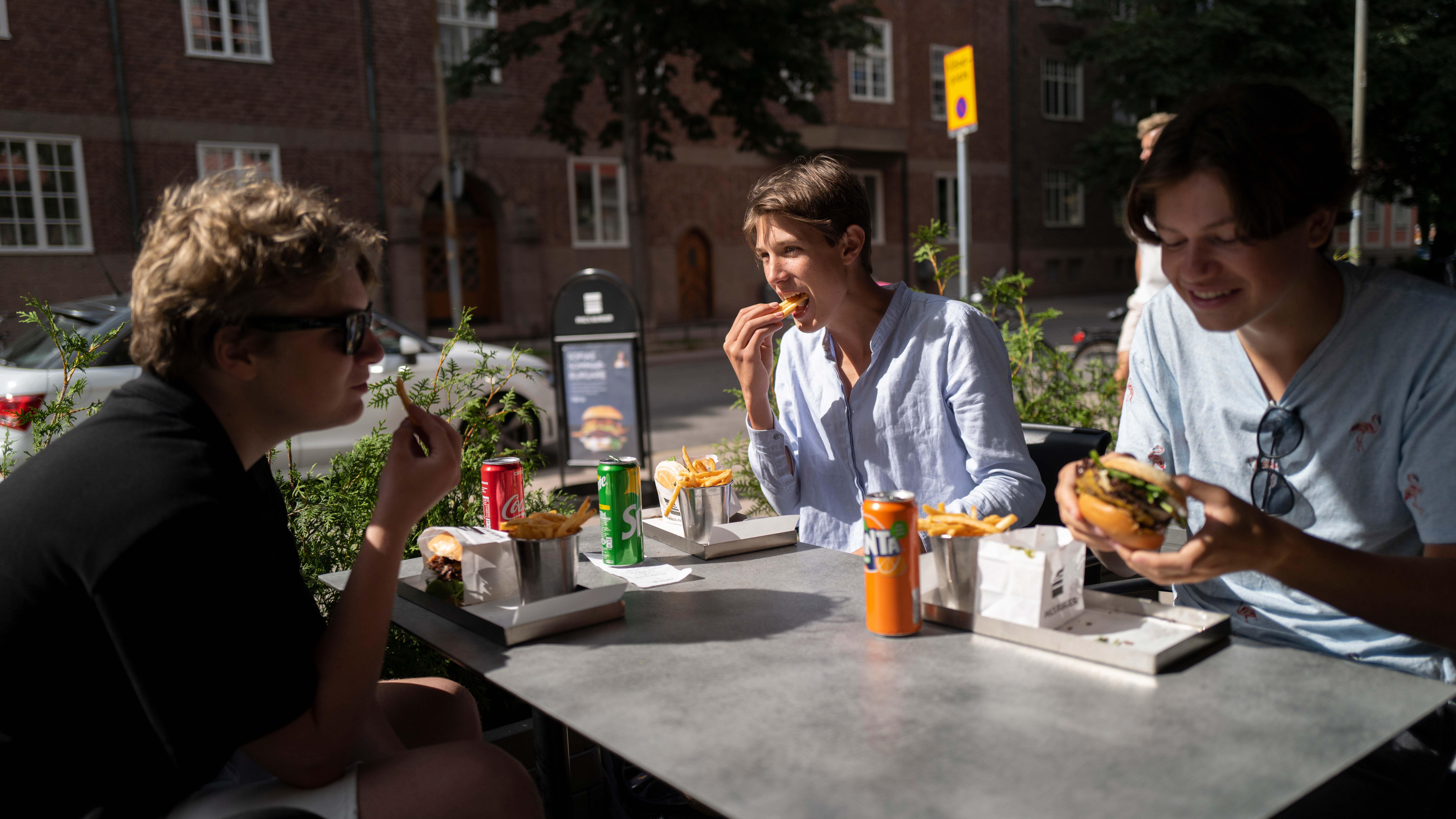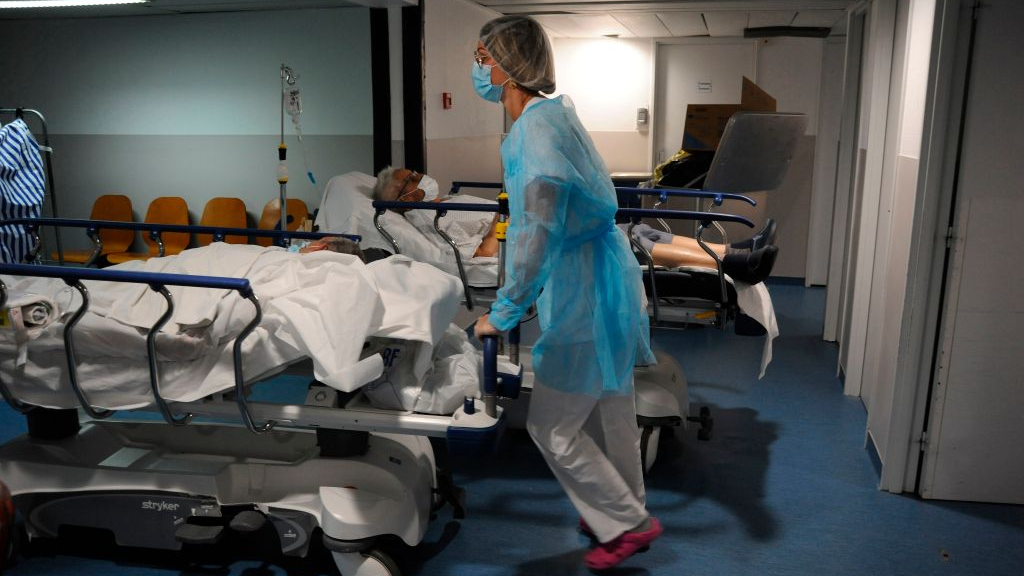02:27

At a time when countries across Europe are seeing alarming surges in daily coronavirus infections, Sweden has recorded its lowest rate of positive tests since the virus emerged, leading many to question whether the Nordic country's controversial 'relaxed' approach to lockdown paid off.
The small country of 10 million people carried out a record number of new coronavirus tests in the past few weeks, with the national health agencyreporting that only 1.2 percent came back positive last week, the lowest rate since the pandemic began, and much better than many countries on the continent are experiencing.
Sweden carried out more than 120,000 tests, with just over 1,300 coming back positive, far below the 19 percent positive tests hit during some weeks in the spring, and now has the lowest rate of spread in Scandinavia.
"Our strategy has been consistent and sustainable. We probably have a lower risk of spread here compared to other countries," said Jonas Ludvigsson, professor of epidemiology at Karolinska Institutet, adding that Sweden likely had a higher level of immunity in the population than most countries.
"I think we benefit a lot from that now," he said.

Sweden, which took a different approach to the COVID-19 outbreak than most countries, is recording its lowest rate of infection. /Martin von Krogh/Getty Images
Straying from the approach taken by the rest of Europe, and perhaps the world, Sweden avoided a lockdown and instead emphasized personal responsibility, social distancing and good hygiene in a bid to slow rather than eradicate a disease deemed here to stay.
The strategy drew fierce criticism both at home and abroad as deaths shot up during the spring, but has also been lauded by WHO officials as a sustainable model.
While many countries have changing rules and lockdown restrictions, Swedish health agency director-general Johan Carlson told a news conference that the Swedish guidelines were designed to be easy to understand and retain for an extended period.
More than 5,800 people with the disease have died, many times higher per capita than in neighbouring Nordic countries but lower than Italy, Spain and the UK.
Deaths, hospitalizations and new cases have now dropped to low levels whilst countries such as Spain and France contend with surges in infections after they lifted lockdowns.

France reached a dire milestone on Saturday with coronavirus cases in one day rising over 10,000 for the first time. /Pascal Bachelet/BSIP/Education Images/Universal Images Group via Getty Images
In France, a dire milestone was reached on Saturday, as 10,561 new coronavirus cases were confirmed in a single day – the country's highest daily number since the pandemic began. A previous record of 9,843 new infections had been reported on Thursday.
Spain has also experienced an alarming surge in cases and became the first country in western Europe to register 500,000 coronavirus infections on 7 September, after a second surge in cases coinciding with schools reopening.
The country recorded 4,708 new infections over 24 hours on 11 September, bringing its total to 566,326. The secretary general of Spain's doctors' union has blamed the recent spike on the decentralization of the country's coronavirus response.
Elsewhere in Europe, Czechia also reported its biggest single-day increase in new coronavirus infections for a third straight day on Sunday, recording 1,541 cases as the country battles a surge in the virus in recent weeks.
The UK has similarly been battling an increasing r-rate, and while many fear that this is evidence of a second wave in the country, senior clinical lecturer and expert in disease control at the University of Exeter, Bharat Pankhania, believes otherwise.
"Without a doubt, it's a continuation of the first wave. The first wave never went away. All that the first wave did was that the case numbers went down because of changes in human behavior," Pankhania told CGTN Europe.
"That is, we were in lockdown and much, much, much restricted human movements. When these human movements start to go up, we go back to school, offices, socializing the case numbers go up. So it's not really the start of a new second wave," he added.

Britons resume socializing outside after lockdown measures are eased, but cases are now rising. /Justin Tallis/AFP
While some scientists say that the Swedish example of not imposing tight restrictions has proven successful in decreasing the risk and spread of the virus over time, others believe restrictions themselves were necessary and useful in containing the spread, but that governments faulted with the timing of them.
"If, for example, the United Kingdom had gone into restriction of movement earlier and kept the restrictions for a little bit longer, we would now today be in a better position," Pankhania said.
Many, including Pankhania, still maintain that other European countries should not follow Sweden's example as the risk is still a large factor.
"We cannot experiment with herd immunity when a new virus has started to circulate, we don't know what it does, we don't know how it behaves, we don't know who it's going to kill, harm, etc," he said.
"The herd immunity that we often talk about is when you can safely give a vaccine. That way we know we are protecting a large number of people. Otherwise, it's folly, you're taking a risk, you don't know which way it will go," he added.
"Sweden took that risk, but if you look at the case numbers for Sweden, it is comparable with other European countries. So let me bust that myth: Sweden has not done any better than any other European country. I admit it hasn't done any worse either."
 简体中文
简体中文

